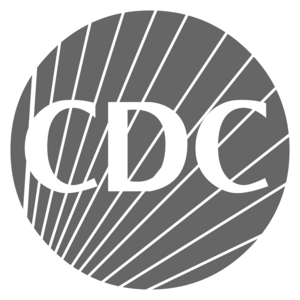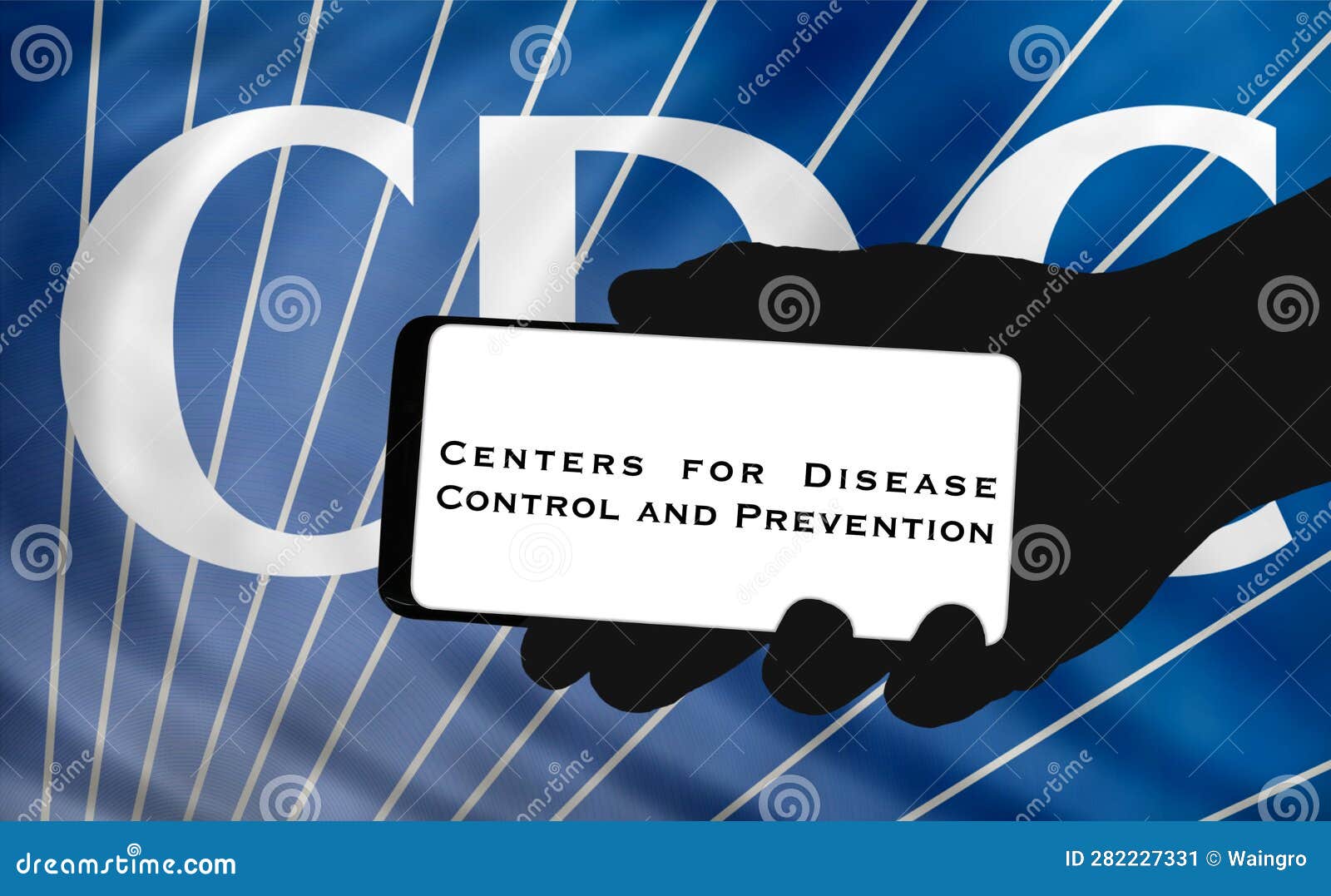When it comes to global health and safety, the Centers for Disease Control and Prevention (CDC) stands as a beacon of knowledge and authority. Whether you're dealing with an outbreak, looking for vaccination guidelines, or simply trying to stay informed about health trends, the CDC has got your back. Think of them as the superheroes of public health, equipped with science, data, and a mission to protect us all. So, buckle up because we're diving deep into everything you need to know about this critical organization.
Now, let's face it, health crises can get overwhelming. From pandemics to everyday diseases, it’s easy to feel like you're swimming in a sea of information—or misinformation. That's where the CDC steps in. They’re not just another government agency; they're the gold standard when it comes to reliable health information. Their work impacts millions of lives daily, and understanding what they do can empower you to make smarter health decisions.
But hey, don't just take my word for it. This article will break down the ins and outs of the CDC, covering everything from their history and mission to their current initiatives and how they affect you personally. So whether you're a health enthusiast, a curious mind, or someone who just wants to stay safe, this guide is for you.
Read also:Paris Jackson And Debbie Rowe A Journey Of Family Fame And Legacy
Who Are the Centers for Disease Control and Prevention?
The Centers for Disease Control and Prevention, often shortened to CDC, is a U.S. federal agency under the Department of Health and Human Services (HHS). Established in 1946, the CDC was originally created to combat malaria in the United States. Fast forward to today, and their scope has expanded way beyond mosquitoes. They're now responsible for monitoring and addressing a wide range of health threats, from infectious diseases to chronic illnesses and even environmental hazards.
Think of the CDC as the brain trust of public health. They're the ones who crunch the numbers, analyze data, and provide evidence-based recommendations that guide healthcare policies worldwide. And guess what? They don't just sit in labs all day. The CDC actively collaborates with other organizations, governments, and communities to ensure their efforts have a real-world impact.
Key Facts About the CDC
- Founded in 1946 as the Communicable Disease Center.
- Headquartered in Atlanta, Georgia.
- Operates under the U.S. Department of Health and Human Services.
- Focuses on disease prevention, health promotion, and emergency preparedness.
Now, here's the kicker: the CDC doesn't just focus on domestic issues. They also play a significant role in global health security. Their expertise and resources are often deployed internationally to tackle outbreaks and improve health systems worldwide. So yeah, they're kind of a big deal.
The Mission and Vision of the CDC
The CDC's mission is simple yet powerful: to protect America from health, safety, and security threats, both foreign and domestic. But let's break that down a bit. What does "health, safety, and security" really mean? It means everything from preventing the spread of infectious diseases to ensuring food safety and even preparing for natural disasters. The CDC is basically the Swiss Army knife of public health.
As for their vision, the CDC aims to achieve true health security for all. This means creating a world where everyone has access to the tools and knowledge they need to live healthy lives. Sounds ambitious, right? But hey, if anyone can pull it off, it's the CDC. They've been doing it for decades, and their track record speaks for itself.
Core Values That Drive the CDC
- Science: Everything they do is grounded in rigorous research and evidence.
- Integrity: They operate with transparency and accountability.
- Collaboration: They work hand-in-hand with partners across the globe.
- Innovation: They're always looking for new ways to improve health outcomes.
These values aren't just words on a page. They're the foundation of everything the CDC does, from developing vaccines to responding to emergencies. And honestly, in a world full of uncertainty, having an organization like the CDC that sticks to its principles is a breath of fresh air.
Read also:Musk Vs Senator Tesla Drama Unfolds
What Does the CDC Actually Do?
Okay, so we know what the CDC is and what they stand for, but what do they actually do on a day-to-day basis? Well, buckle up because their responsibilities are as vast as they are important. Here's a quick rundown:
First off, the CDC is all about surveillance. They monitor health trends, track disease outbreaks, and collect data to identify potential threats. Think of them as the detectives of public health, always on the lookout for clues that could save lives. And when they find something, they don't just sit on it. They take action.
Then there's research. The CDC conducts studies to better understand diseases and develop strategies to combat them. Whether it's testing new vaccines or analyzing the effects of environmental factors on health, their research is cutting-edge and essential.
Key Areas of Focus
- Infectious Diseases: From flu to HIV, the CDC is on top of it all.
- Chronic Diseases: They tackle biggies like heart disease, diabetes, and cancer.
- Environmental Health: Air quality, water safety, you name it.
- Injury Prevention: Reducing accidents and promoting safety.
And let's not forget emergency preparedness. When disasters strike, whether natural or man-made, the CDC is ready to respond. They provide guidance, resources, and support to ensure communities can recover and rebuild.
How Does the CDC Impact Your Life?
Now, you might be thinking, "Sure, the CDC sounds great, but how does it affect me?" Well, let me tell you, their influence is everywhere. Ever gotten a flu shot? Thank the CDC for the guidelines that made it happen. Ever wondered if your tap water is safe to drink? The CDC probably had a say in that too. They're like the silent guardians of your health, working behind the scenes to keep you safe.
But it's not just about individual health. The CDC also plays a crucial role in shaping public policy. Their recommendations inform everything from school health programs to workplace safety regulations. So even if you don't interact with the CDC directly, their work touches almost every aspect of modern life.
Real-Life Examples of CDC Impact
- Reducing smoking rates through awareness campaigns.
- Improving maternal and child health outcomes.
- Enhancing food safety standards.
And let's talk about the pandemic. When the world was thrown into chaos, the CDC was one of the first organizations to step up. They provided guidance on mask-wearing, social distancing, and vaccination, helping to mitigate the spread of the virus. Their efforts saved countless lives, and their work continues to this day.
The Role of the CDC in Global Health
While the CDC is a U.S. agency, their reach extends far beyond American borders. Through partnerships with organizations like the World Health Organization (WHO), they tackle health challenges on a global scale. From combating Ebola in Africa to improving maternal health in Asia, the CDC is a key player in international health efforts.
One of their most significant initiatives is the Global Health Security Agenda (GHSA). This program aims to strengthen health systems worldwide, ensuring that every country is prepared to detect and respond to health threats. It's a collaborative effort that reflects the CDC's commitment to global health security.
Success Stories in Global Health
- Eliminating smallpox worldwide.
- Reducing polio cases by over 99%.
- Improving HIV treatment access in developing countries.
These achievements didn't happen overnight. They're the result of years of hard work, dedication, and collaboration. And while there's still much to be done, the CDC's efforts have made a tangible difference in the lives of millions around the globe.
Challenges Faced by the CDC
Of course, no organization is without its challenges, and the CDC is no exception. One of the biggest hurdles they face is funding. Like many government agencies, they rely on budget allocations that can fluctuate depending on political priorities. This can sometimes limit their ability to fully implement their initiatives.
Another challenge is misinformation. In today's digital age, false information spreads faster than ever. The CDC works tirelessly to combat this by providing accurate, up-to-date information. But it's an uphill battle, and they need our help to ensure the truth gets out there.
How You Can Support the CDC
- Stay informed by following their official channels.
- Spread accurate information to your networks.
- Advocate for public health funding and policies.
By supporting the CDC, you're not just helping them; you're helping everyone who benefits from their work. And that's pretty much all of us.
The Future of the CDC
Looking ahead, the CDC has ambitious plans to continue advancing public health. They're investing in new technologies, expanding their research capabilities, and strengthening their partnerships with other organizations. The goal? To stay one step ahead of emerging health threats and ensure a healthier future for all.
But they can't do it alone. As individuals, we have a role to play too. By staying informed, following their guidelines, and supporting their mission, we can help the CDC achieve its vision of true health security for everyone.
Conclusion
So there you have it, folks. The Centers for Disease Control and Prevention isn't just another government agency; it's a lifeline for public health. From monitoring diseases to shaping policies, their work impacts us all in ways we might not even realize. And while they face challenges, their dedication and expertise continue to make a difference.
Here's the bottom line: the CDC needs our support. By staying informed, sharing accurate information, and advocating for public health, we can help them achieve their mission. So go ahead, check out their website, follow their updates, and do your part to keep the world healthy. After all, when it comes to health and safety, we're all in this together.
And hey, if you found this article helpful, don't forget to share it with your friends. Knowledge is power, and the more people who understand the importance of the CDC, the better off we'll all be. Now go out there and make a difference!
Table of Contents


